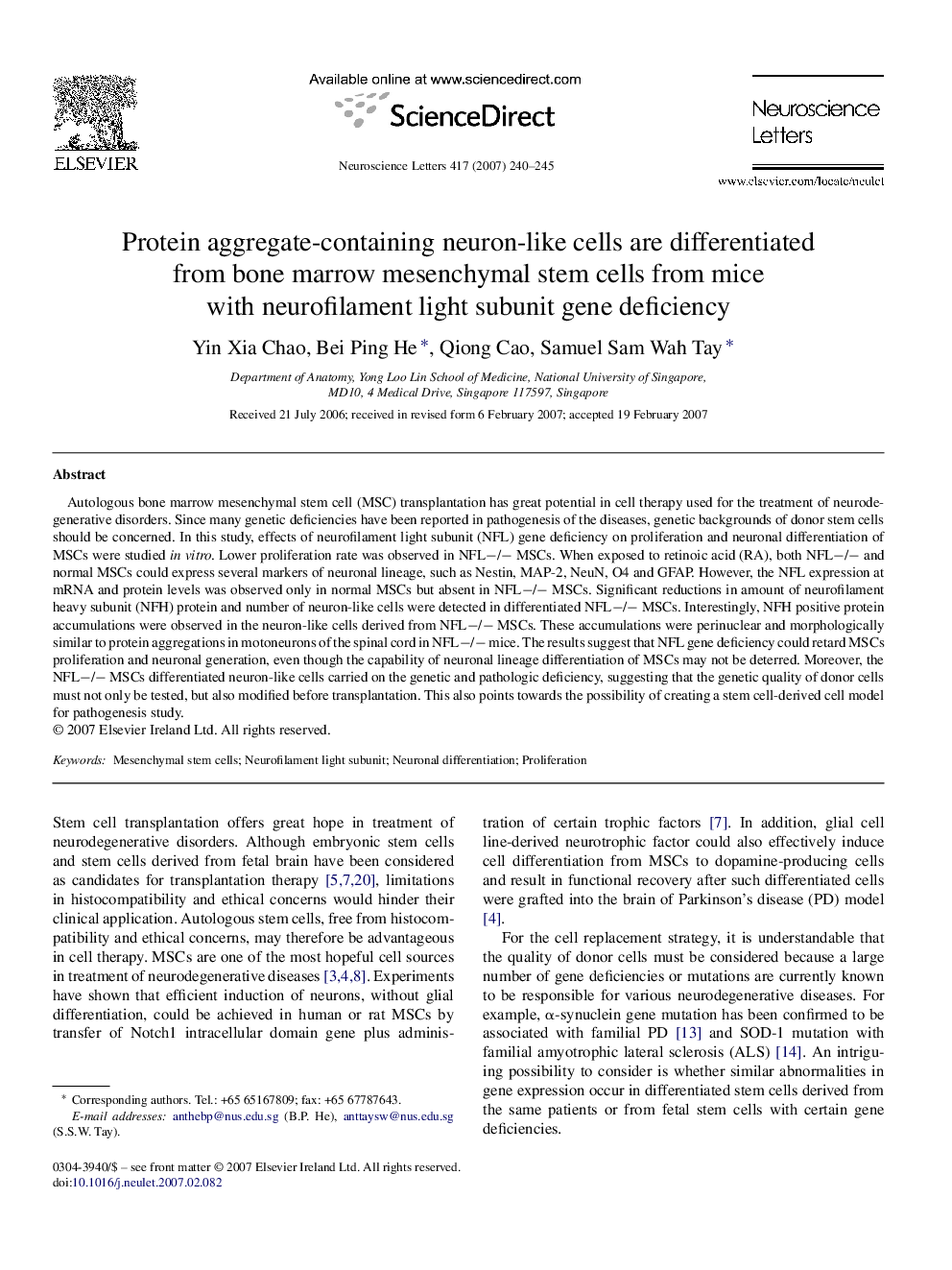| Article ID | Journal | Published Year | Pages | File Type |
|---|---|---|---|---|
| 4349383 | Neuroscience Letters | 2007 | 6 Pages |
Autologous bone marrow mesenchymal stem cell (MSC) transplantation has great potential in cell therapy used for the treatment of neurodegenerative disorders. Since many genetic deficiencies have been reported in pathogenesis of the diseases, genetic backgrounds of donor stem cells should be concerned. In this study, effects of neurofilament light subunit (NFL) gene deficiency on proliferation and neuronal differentiation of MSCs were studied in vitro. Lower proliferation rate was observed in NFL−/− MSCs. When exposed to retinoic acid (RA), both NFL−/− and normal MSCs could express several markers of neuronal lineage, such as Nestin, MAP-2, NeuN, O4 and GFAP. However, the NFL expression at mRNA and protein levels was observed only in normal MSCs but absent in NFL−/− MSCs. Significant reductions in amount of neurofilament heavy subunit (NFH) protein and number of neuron-like cells were detected in differentiated NFL−/− MSCs. Interestingly, NFH positive protein accumulations were observed in the neuron-like cells derived from NFL−/− MSCs. These accumulations were perinuclear and morphologically similar to protein aggregations in motoneurons of the spinal cord in NFL−/− mice. The results suggest that NFL gene deficiency could retard MSCs proliferation and neuronal generation, even though the capability of neuronal lineage differentiation of MSCs may not be deterred. Moreover, the NFL−/− MSCs differentiated neuron-like cells carried on the genetic and pathologic deficiency, suggesting that the genetic quality of donor cells must not only be tested, but also modified before transplantation. This also points towards the possibility of creating a stem cell-derived cell model for pathogenesis study.
